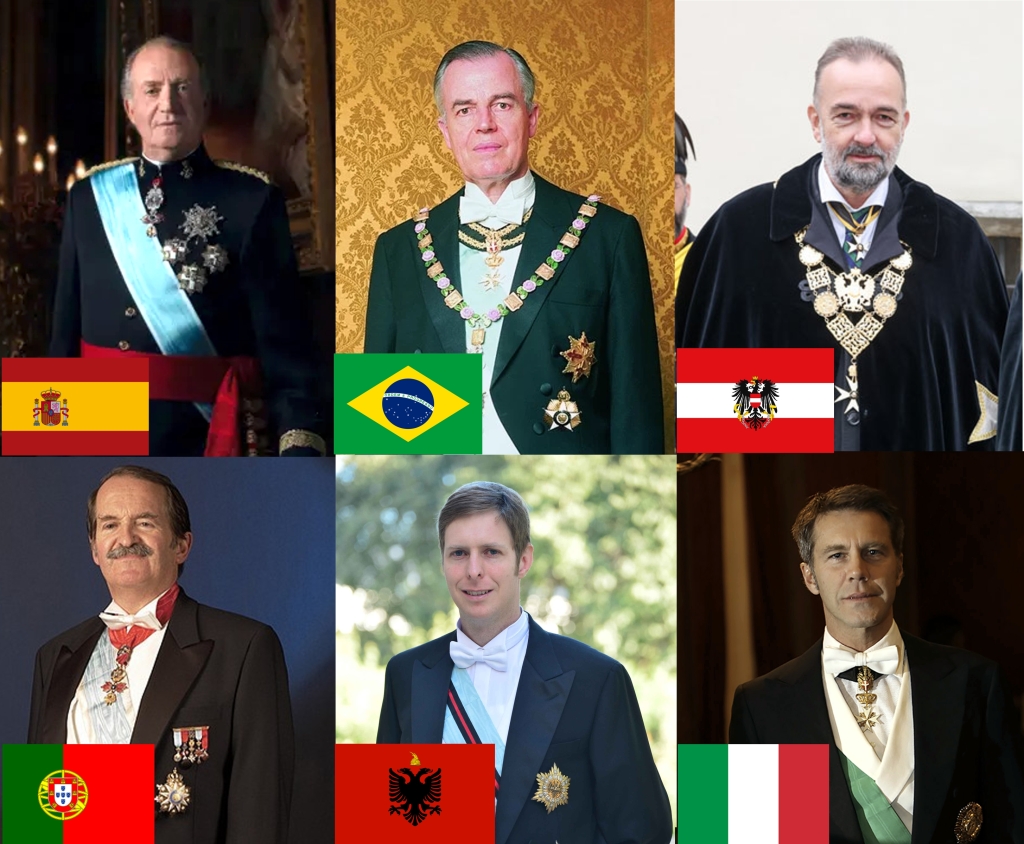A lot of people don’t understand how is it possible that there were autonomous principalities/sheikhdoms in Mount Lebanon if the Ottoman Empire ruled the whole area since the 16th century? The Ottoman Empire only nominally ruled Mount Lebanon from its conquest in 1516 until the end of World War I in 1918.
The Ottoman sultan, Selim I (1516–20), invaded Syria and Lebanon in 1516. The Ottomans, through the Maans, a great Druze feudal family, and the Shihabs, a Sunni Muslim family that had converted to Christianity, ruled Lebanon until the middle of the nineteenth century.
Ottoman administration, however, was only effective in urban areas, while most of the country was ruled by tribal chieftains. Those princes/sheikhs were left relatively alone until the 1700s when the Ottomans demanded taxes and a larger control over those principalities.
“… Ottoman administration only functioned effectively in the large towns, where the garrisons of Janissaries were stationed, in a section of the coastal strip and certain portions of the countryside. A large part of the country was governed by local chieftains, ruling by virtue of descent or ability and practically autonomous ; they held their fiefs no longer on condition of performing military service, but on that of collecting taxes for the Sultan’s Government. Both the local dynasts and the Turkish Pashas were largely uncontrolled in their dealings with their subjects and with one another.” (Syria and Lebanon: A Political Essay – A. H. Hourani, p.26)
The system of administration in Lebanon during this period is best described by the Arabic word iqta‘, which refers to a political system, similar to other feudal societies, composed of autonomous feudal families that were loyal to the emir, who himself was nominally loyal to the sultan; therefore, allegiance depended heavily upon personal loyalty. The Ottoman Empire also provided minority religious communities autonomy through the millet system to the extent that they could regulate themselves while recognizing the supremacy of the Ottoman administration.
According to accepted international law, the simple fact that a principality would pay taxes or recognize supremacy doesn’t diminish its sovereign status:
“Feudal vassalage. So, also, tributary states, and those subject to a kind of feudal dependence or vassalage, are still considered as sovereign, unless their sovereignty is destroyed by their relation to other states. Tribute does not necessarily affect sovereignty, nor does the acknowledgment of a nominal vassalage or feudal dependency.” (Henry Wager Halleck, Elements of international law and laws of war p.44)
According to one of the Forefathers of International Law, the jurist Emmerich de Vattel in his book, “The Law of Nations“:
“Book I – Chap. I. Of Nations or Sovereign States
§ 5. States bound by unequal alliance.
We ought, therefore, to account as sovereign states those which have united themselves to another more powerful, by an unequal alliance, in which, as Aristotle says, to the more powerful is given more honour, and to the weaker, more assistance. The conditions of those unequal alliances may be infinitely varied, but whatever they are, provided the inferior ally reserve to itself the sovereignty, or the right of governing its own body, it ought to be considered as an independent state, that keeps up an intercourse with others under the authority of the Law of Nations.
§ 6. Or by treaties of protection.
Consequently a weak state, which, in order to provide for its safety, places itself under the protection of a more powerful one, and engages, in return, to perform several offices equivalent to that protection, without however divesting itself of the right of government and sovereignty, – that state, I say, does not, on this account, cease to rank among the sovereigns who acknowledge no other law than that of Nations.
§ 8. Of feudatory states.
The Germanic nations introduced another custom – that of requiring homage from a state either vanquished, or too weak to make resistance. Sometimes even, a prince has given sovereignties in fee, and sovereigns have voluntarily rendered themselves feudatories to others. When the homage leaves independency and sovereign authority in the administration of the state, and only means certain duties to the lord of the fee, or even a mere honorary acknowledgment, it does not prevent the state or the feudatory prince being strictly sovereign. The King of Naples pays homage for his kingdom to the Pope, and is nevertheless reckoned among the principal Sovereigns of Europe.”
Therefore, it’s easy to conclude that the fact that the Ottomans had nominal control over the area, it didn’t affect the sovereignty of the small principalities that existed in the area.
Additional References:
1. Albert Hourani, Syria and Lebanon, a Political Essay (London 1946), 26-27.
2. Kamal Salibi, The Modern History of Lebanon (London 1965), 16.
3. Henri Lammens, La Syrie, Précis Historique, 2 vols. (Beirut 1921), 132.
4. Albert Hourani, op. cit., 26.
5. Ibid., 27.
6. When Napoleon was at the gates of Akka, al-Jazzar requested immediate aid, to whom Bashir II apologized and offered for an excuse that he had no control over his people. Al-Jazzar then appointed Yusuf’s two sons in his place.
7. William Polk, The Opening of South Lebanon, 1788-1840 (Cambridge, Mass. 1953), 14.
8. Kamal Salibi, op. cit., 21.
9. Tannus Ash-Shidyaq, Akhbar al-Ayan fi Jabal Lubnan (History of the Notables in Mount Lebanon) (Beirut 1859), 154.
10. John L. Burkhardt, Travels in Syria and the Holy Land (London 1882), 4.
11. William Polk, op. cit., 17.
12. Kamal Salibi, op. cit., 22.
13. Ibid., 23.
14. William Polk, op. cit., 20.
15. Michel Chebli, Une Histoire du Liban à l’Epoque des Emirs, 1635-1841 (Beriut 1955), 265.
16. Ibid., 268.
17. Philip Hitti, Lebanon in History (London 1957), 417; Polk says that Bashir II was not allowed to meet with Muhammad Ali. Polk, op. cit., 23.
18. William Polk, op. cit., 22.
19. Both Bashir II and Abdallah Pasha were in conflict with the new Pasha of Damascus who intended to reassert Damascus’ claims of the Biqa. While both were disobedient to the Ottoman authority, Bashir Janbulat was a devout supporter.
20. Haydar Shihab, Lubnan Fi ‘ahd al-Umara ash-Shihabiyyin, eds. A. Rustum and F. E. Boustany, 3 vols. (Beirut 1933), 738. Muhammad Ali told Bashir II: ‘It is for your sake and not for Abdallah’s that I am going into all this trouble with the Porte’.
21. William Polk, op. cit., 29.
22. Haydar Shihab, op. cit., 760-762, mentions also that Sheikh Yusuf al-Halabi, one of the Ukkal, was arrested by Emir Bashir because he was urging the Druzes to revolt ‘for the protection of the religion’.
23. There were few Christians on the side of Bashir Janbulat.
24. Philip Hitti, op. cit., 415.
25. Ibid., 417.
26. Albert Hourani, op. cit., 27.
27. W. P. Hunter, Narrative of the Late Expedition to Syria, vol. I (London 1842), 204.
28. Ibid., 210.
29. Yusuf and Arif Abu Shaqra, al-Harakat fi Lubnan(Beirut 1852), 26.
30. Ibid., 26-27.
31. Bulus Mas’ad and N. Khazin, eds., al-Usul al-Tarikhiyyah: Majmu’at Watha’iq, Ashkut (n.p. 1958), 557-558.
32. William Polk, op. cit., 129.
33. Bulus Mas’ad, op. cit., 556.
34. Abu-Shaqra, op. cit., 25.
35. William Polk, op. cit., 125-135.
36. Albert Hourani, op. cit., 27.
37. Kamal Salibi, op. cit., 36.
38. Yusuf Abu-Shaqra, op. cit., 20, mentions that in the battle of Ayn Jam’an, Khalil, the son of Emir Bashir, was fighting the Druzes with 2000 Christians.
39. Michel Chebli, op. cit., 343.
40. Iskandar Abkarius, The Lebanon in Turmoil, Syria and the Powers in 1860 trans. J. F. Scheltema (New Haven 1920), 17, cites a letter from the French king, St Louis, written in 1250, in which he promises the Maronites his protection.
41. Philip Hitti, op. cit., 421.
42. Kamal Salibi, op. cit., 28.
43. Henri Lammens, ‘Ibrahim Pasha Fi Suriyya’ (Ibrahim Pasha in Syria) (review of Abu Izz al-Din Book) in al-Mashriq, vol. 27, 922.
44. Ibid., 929.
45. Kamal Salibi, op. cit., 30.
46. Abd al-Razzaq al-Bitar, Hilyat al-Bashar(Damascus 1961), 15.
47. Ibid.
48. Yusuf Abu Shaqra, op. cit., 18.
49. Tannus al-Shidyaq, op. cit., 19.
50. Malcolm Kerr, Lebanon in the Last Years of Feudalism: A Contemporary Account by Antun Dahir al-Agigi and other Documents (Beirut 1959), 2; K. Salibi, op. cit., 35; Hitti, op. cit., 424.
51. Kamal Salibi, op. cit., 35-36.
52. Hitti, op. cit., 424.
53. Tannus ash-Shidyaq, op. cit., 567.
54. Kamal Salibi, op. cit., 29.
55. Ibid.
56. Henri Lammens, op. cit., 922.
57. Michel Chebli, op. cit., 379. Polk, op. cit., 198, 205, 209.
58. Kamal Salibi, op. cit., 38.
59. William Polk, ‘The British Connections with the Druzes’, Middle-East Jour nal, vol. 17, nos. 1 and 2 (Winter-Spring 1963), 153-154.
60. Ibid.
61. Henri Lammens, op. cit., 922.
62. Kamal Salibi, op. cit., 48-49.
63. Amin al-Rihani, al-Nakabat, second edition (Beirut 1948), 137.






















